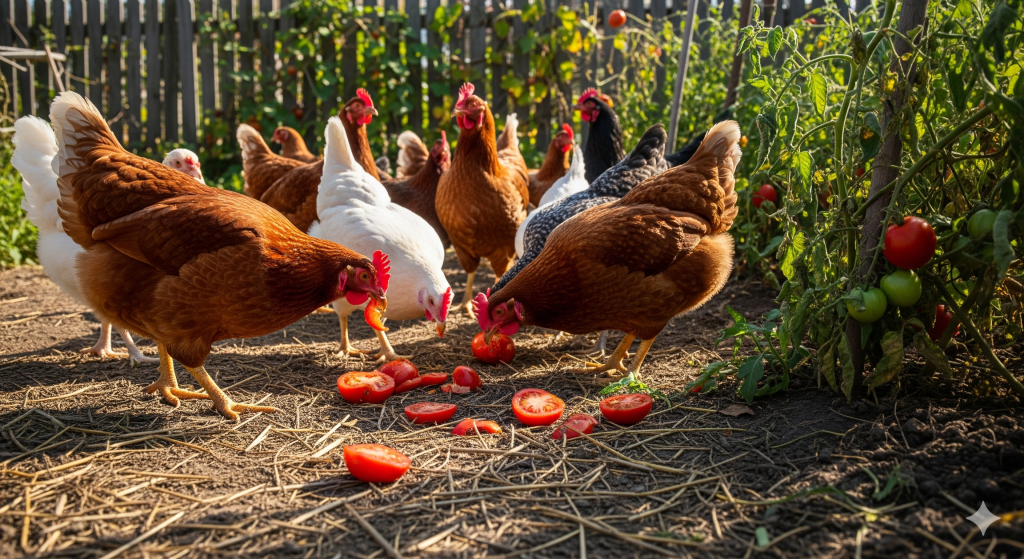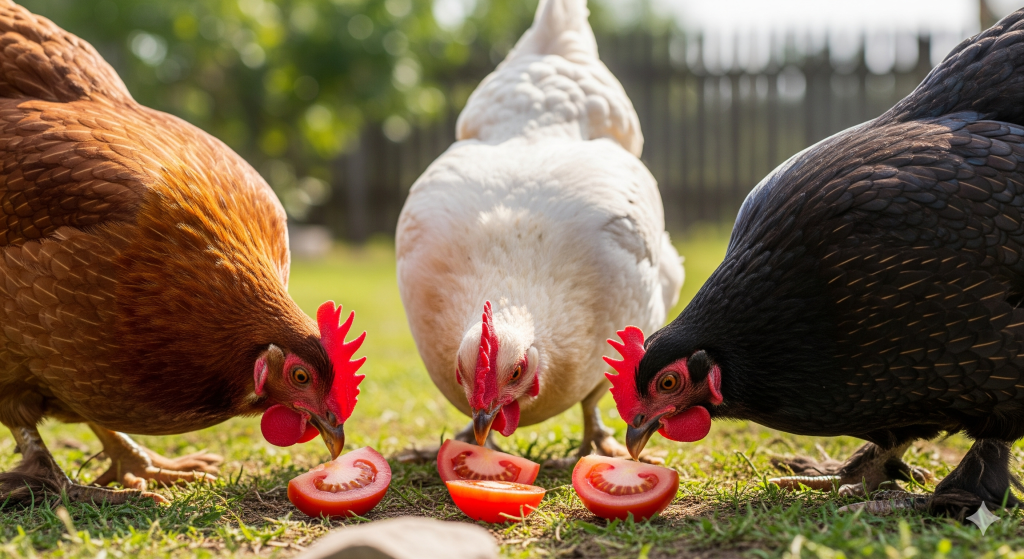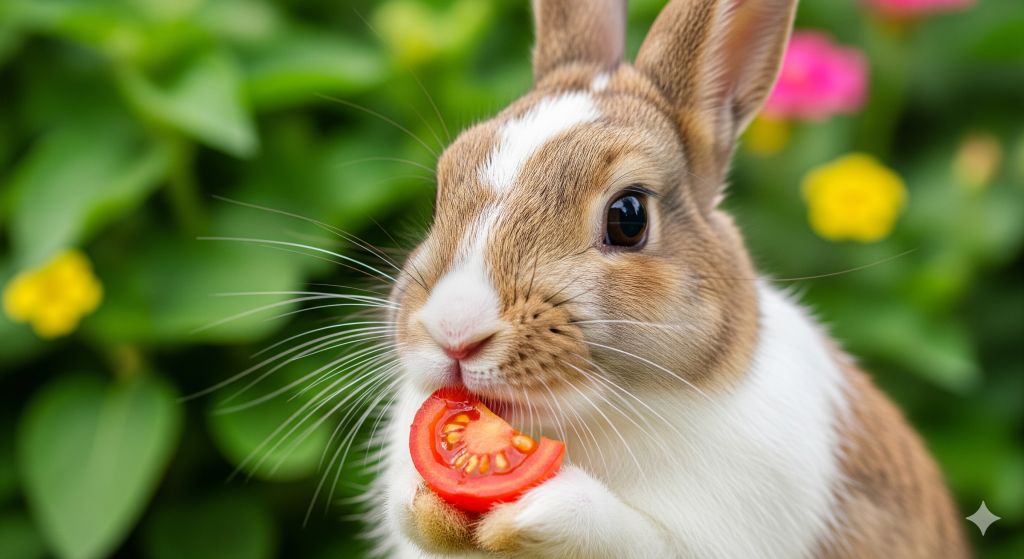Table of Contents
For backyard chicken keepers, the garden is a treasure trove of potential treats for the flock. As you harvest your vibrant, sun-ripened produce, the question inevitably arises: can chickens eat tomatoes? The short answer is a resounding yes, but with some crucial exceptions that every flock owner must know. While the ripe, red fruit is a healthy snack, other parts of the tomato plant are toxic and can pose a serious danger to your birds.
This comprehensive guide will walk you through everything you need to know about feeding tomatoes to your chickens, from the nutritional benefits to the parts of the plant you must avoid.
The Tomato Plant Paradox: Why Can't Chickens Eat (All) Tomatoes?
This is where the most significant confusion lies. The statement “chickens can’t eat tomatoes” is a common myth that stems from a partial truth. Chickens absolutely cannot eat the tomato plant. The leaves, stems, vines, and flowers of the tomato plant belong to the nightshade family (Solanaceae), which contains a toxic glycoalkaloid called solanine.
Solanine is a natural pesticide the plant produces to protect itself from insects and diseases. When ingested by chickens, even in small amounts, it can lead to a range of symptoms, including:
- Gastrointestinal distress (diarrhea, vomiting)
- Lethargy and weakness
- Loss of coordination
- In severe cases, respiratory distress and even death
Crucially, unripe green tomatoes also contain high levels of solanine. As the tomato ripens and turns its characteristic red (or orange, or yellow), the solanine concentration drops to safe, negligible levels, making the fruit a perfectly acceptable treat. Therefore, the rule is simple: never feed your chickens any green part of the tomato plant, including unripe green fruit.
Want the Ultimate Guide to Off-Grid Living?

If you love the self-sufficient lifestyle, this is the only guide you’ll ever need. Learn how to generate your own power, secure your water supply, and become truly independent. No fluff, just actionable plans.
➡️ Check out The Self-Sufficient Backyard and start your journey today!
Are tomatoes too acidic for chickens?
Another common concern is the acidity of tomatoes. It’s true that tomatoes have a notable acid content, primarily citric and malic acid. This leads some owners to worry that feeding them to their flock could cause digestive upset or sour crop.
For a healthy chicken, the acidity in a ripe tomato is not a problem when fed in moderation. Chickens have a robust and efficient digestive system, including a crop, proventriculus (the true stomach), and a gizzard, which are well-equipped to handle various foods. The key is moderation. A few chopped tomatoes as a treat for your flock won’t disrupt their digestive pH. However, making tomatoes a primary food source could potentially lead to issues. Think of them as a dessert, not a main course.
What does tomato do to chickens?
When you offer ripe, red tomatoes to your flock, you’re providing more than just a tasty snack. You’re giving them a nutritional boost. Ripe tomatoes are packed with beneficial nutrients, including:
- Vitamins: They are an excellent source of Vitamin C, which supports the immune system, and Vitamin A, crucial for good vision and feather health. They also contain Vitamin K, which is important for blood clotting.
- Antioxidants: Tomatoes are famous for their high concentration of lycopene, a powerful antioxidant that helps combat cellular damage.
- Hydration: With a water content of about 95%, tomatoes are a fantastic way to help keep your flock hydrated, especially during hot summer months.
- Potassium: This essential mineral plays a role in maintaining a proper fluid balance and is vital for metabolic functions.
Feeding tomatoes can also provide enrichment, keeping your chickens entertained as they peck and forage for the juicy pieces.
Can chickens eat tomato skins and seeds?
Yes, they can. When you chop up a ripe tomato for your flock, there is no need to peel it or remove the seeds. The skin and seeds are perfectly safe and digestible for chickens. In fact, the skin contains a good amount of fiber and nutrients. Your chickens will happily consume the entire slice of the ripe fruit—skin, pulp, seeds, and all.
Can I feed my chickens tomato scraps?
Absolutely! Feeding your chickens kitchen scraps is a great way to reduce food waste and supplement their diet. Tomato scraps are a perfect addition to this routine, provided you follow a few simple guidelines:
- Only Ripe Fruit: Ensure all scraps are from ripe tomatoes. Avoid any pieces with green, unripe parts attached.
- No Plant Material: Never throw tomato vines, leaves, or stems into their coop or run.
- Check for Mold: Do not feed your chickens any tomatoes that show signs of mold or rot. Mold can produce mycotoxins that are harmful to your flock.
- Avoid Added Ingredients: Only offer plain tomato scraps. Avoid feeding them tomatoes from salads with dressings, or from sauces that may contain high levels of salt, sugar, garlic, or onions, which can be harmful.
- Chop Them Up: While chickens can peck a whole tomato apart, chopping them into smaller, manageable pieces makes it easier for the whole flock to get a share and can prevent a single chicken from running off with the entire treat.
Conclusion
So, can chickens eat tomatoes from the garden? The answer is a clear yes, with careful consideration. The juicy, red, ripe fruit is a nutritious, hydrating, and enjoyable treat that offers numerous health benefits for your flock. It’s a fantastic way to share your garden’s bounty and reduce waste.
However, the safety of your chickens is paramount. Always remember the golden rule: Red is right, green is a fright. Never allow your flock access to the tomato plants themselves—the leaves, stems, and unripe green fruits are toxic due to their solanine content. By sticking to ripe tomatoes in moderation, you can safely and confidently make this garden favourite a regular part of your flock’s treat rotation.



